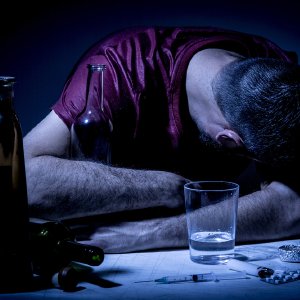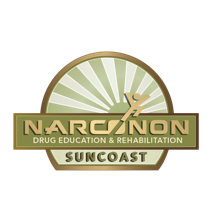When is the Heroin Problem Going to Stop?

Right now, I think it’s safe to say that the heroin and opiate epidemic in this country is beyond out-of-control. The drugs that are in circulation in communities around the country trump those of 20 years ago, ten-fold. Twenty years ago we didn’t have to worry about elephant tranquilizer-laced heroin, cocaine cut with strychnine or mind-melting synthetic drugs posing as LSD. It was much simpler times. In response to massive overdoses and casualties, it seems that the best the “authorities” can do is issue public health warnings and give half-baked advice to try and curb the number of people dying out there.
In Cleveland, Ohio officials issued another “Public Health Warning” after seven, yes seven, people died of fatal overdoses this past Saturday. Seven deaths in one county in one day is extremely alarming. As usual, Fentanyl is being blamed as the culprit behind all the deaths. Cuyahoga County is no stranger to the current heroin problem, having some of the highest overdose rates in the country. According to a recent report, local officials gave advice to not use drugs alone and not to mix drugs together to minimize the possibility of overdose. Seriously? “Don’t use drugs alone” is the best they can tell the public after a mesmerizing number of people died last Saturday? Officials basically said to use the “buddy system” when using heroin.
That’s some very “far-fetched” advice. Heroin isn’t exactly a “social” drug. People don’t pass syringes around at parties and shoot up together. Heroin is a dark, lonely drug that people use in public restrooms or dimly lit bedrooms with the shades drawn and all the doors locked. Alone. When telling people to just not get high by themselves and issuing yet another public health warning is the best the authorities can do amongst all the outrage and devastation heroin is causing, it is clear they lack any effective solution.
How about making more help available? How about having police intervene on the addicts and put them in rehab? Those are at least some better ideas. They can give all the advice they want and issue Public Health Warnings until they’re blue in the face, but really, what is it going to solve? Advice and warnings don’t handle addiction. They don’t make the drug addict put down the needle and choose a better life. They don’t make the horrific withdrawals go away. They don’t repair the damage caused to families. Treatment does. Rehabilitation and understanding does.
The catch-22 of the situation is that drug treatment isn’t exactly widely available to everyone. With a lot of addicts having Medicaid or other types of state assistance, once they’re ready to get help, they are most likely going to hit a 2-4 month waiting list for a bed in a detox or rehab. Might as well just hand them their drugs back. Once an addict decides they need help, they need to get into treatment quickly! As fast as that door opens, it shuts even faster. A lot of people out there don’t have the money to pay out-of-pocket for treatment or health insurance, so they’re left “out in the cold” to fend for themselves and find a treatment center that has the shortest wait.
What state governments and officials can do, if they really want to solve the heroin problem, is to make more treatment available to addicts. And not just any type of treatment, the right treatment. The type that will handle all sides of their addiction and get the addict back to where they can have control over their lives again and be able to handle life and life’s problems without resorting to drugs as a solution. If our society did that, we would probably see a drastic reduction in overdoses, fatalities and newly addicted individuals. The right treatment, made more widely available IS the solution!


